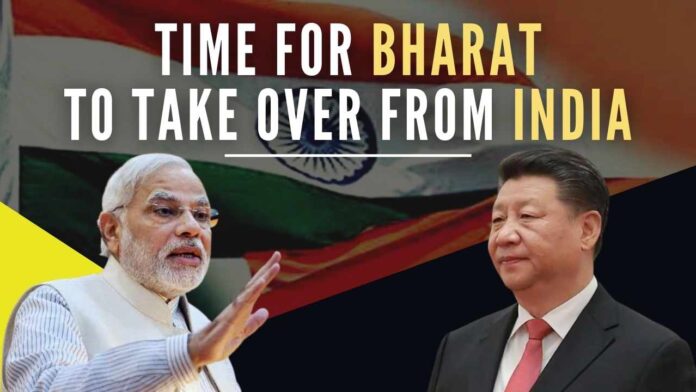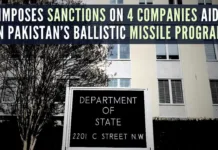
Inaction and a status-quo mindset not an option
As the dragon keeps clawing away at smaller countries around India, causing significant long-term security challenges, India has to decide the way forward and decide now.
With the collapse of the monarchy, the rise of the communist party, and the transformation from a Hindu nation to a secular democratic republic, Nepal has come a long way. The Government of India was complicit in effecting these changes during the UPA rule. From active involvement in the removal of the monarchy to supporting the Madheshi agitations of south Nepal, the missteps of the Indian agencies have given enough leverage and opportunities for China to gain significant influence in Nepal. From occupying border villages without any resistance from the Nepalese government to pumping in millions of dollars in unprofitable infrastructure projects to buying-out politicians, especially from the communist parties, and introducing Chinese language studies into the Nepalese education system, China has made significant inroads into the political, administrative, social and security establishments which are going to impact India’s security, especially it’s the north-eastern region. The railway and expressway proposed to be built by China connecting Lhasa to Katmandu would reach right up to the chicken’s neck of the Siliguri corridor, which would threaten the access to the entire north-eastern region. Be it the Kalapani map controversy or the attempts to appropriate Buddhism including planting the Chinese version of `guided Buddhism’ in important Buddhist centers of Nepal, the dragon has been relentless in its usurpation and appropriation of traditional Indian influence and narrative in Nepal.
The meltdown and collapse of the Sri Lankan economy and its political structures have unmissable signs of the dragon’s footprints. The Indian establishment failed to prevent the 99-year lease of Hambantota port to the Chinese. Right under the nose of Indian establishment and agencies, the Chinese opened their cheque books to buy-up politicians and debt-trap the nation in unnecessary unprofitable, and costly projects. While many factors added up to cause the Sri Lankan meltdown, the Chinese BRI and String of Pearls hastened up the unfortunate inevitable. A bankrupt Sri Lanka already started yielding its sovereignty as it did in the new Colombo Port Act. The Chinese started picking up projects in the Jaffna peninsula, where they could have put up significant electronic assets either as listening posts or as communication jammers, thus significantly compromising our coastal and south peninsular defences and security. A weak and heavily indebted nation is an easy target for the Pakistani establishment to open a new front in India from, duly sponsored and funded by China. The 2019 Easter bombings in Sri Lanka and the cancerous growth of radicalized Islamic groups in south India, especially in Kerala cannot be looked at in isolation.
The Doklam standoff in 2017 was the first time China ever faced resistance in its salami-slicing in Bhutan. After the disengagement in Doklam, China went all-out in constructing high-quality infrastructure, almost up to Bhutan’s borders for use during any future military moves on Bhutan. It also started raising claims on the Sektang forested region of south-eastern Bhutan, which doesn’t even share a boundary with the China-controlled territory of TAR (Tibetan autonomous region). However, Chinese logic stems from their claim that Arunachal Pradesh is their territory of southern Tibet and Sektang having a border with their “southern Tibet” makes them eligible to stake such absurd claims. While Bhutan doesn’t have direct diplomatic relations with China, and deals through New Delhi and the Chinese embassy in Delhi, in a matter of serious concern to India, Bhutan agreed to settle their boundary dispute with China bilaterally. If the dispute is settled bilaterally, without concurrence from New Delhi, the Chinese-Bhutan border settlement could pose significant challenges to India’s control of the north-eastern region.
From funding the Teesta river projects to providing submarines free of cost, the dragon has been courting Bangladesh to wean it away from Indian influence into their own control. While PM Shaikh Hasina has been friendly with India, the same cannot be assumed from a regime that might replace her in the future, when China could unleash its model of debt-trapping and buying-out influencers in Bangladesh to the detriment of India. Like in Sri Lanka, Bangladesh too is a springboard of Islamic terrorism, demographic change, and political control of much of east and north-east India. Bangladesh was a transit point for large numbers of the Burmese Rohingya Muslims who successfully melted away into even far-off cities like Jammu, Delhi, Jaipur, Hyderabad, Bengaluru, Thiruvananthapuram, and many others. The illegal infiltrators from Bangladesh and Myanmar are a significant threat to the stability, integrity, and security of India.
The Chinese model of buying-up leadership, influencers, and debt-trapping the economy saw its ugly course in the beautiful island nation of Maldives. The Abdullah Yameen regime was so loyal to China that it threw out Indian influence from the nation when they cancelled the security arrangement and returned Indian helicopters, cancelled Indian contractors for their airports and other projects, and were replaced by Chinese companies. Yameen used all legal and illegal methods to keep Indian influence away by arresting, disqualifying, and brutalizing opposition leaders supportive or sympathetic to India. He even clamped emergency in the nation to prevent opposition victory in elections. While he is not in power, he is still running a vicious anti-India campaign spreading hate and venom among the common citizens of Maldives. The Maldives is heavily indebted to China due to the white elephants of the Yameen regime.
The scratches of the dragon in India’s neighborhood started throwing up blood now. Failed economies, radicalized populations, fragmented societies, and compromised securities pose significant threats to India economically, politically, socially, and from a security perspective. As time goes by, the situation in these countries is going to deteriorate much further. Demands for further balkanization of the country, hardened fault-lines in Indian society, radicalized and violent groups, demographic changes, and threats to the economic progress of India are the potential consequences India could face if it allows the situation to continue any further.
By its very characteristic nature, the Indian state, and the Government of India maintain a status-quo situation and avoid changes. It continues to react to internal threats or external conspiracies rather than take pre-emptive action, and eliminate or avoid threats from forces opposed to its very existence. Hundreds of crores are spent every year on border fencing and patrolling related infrastructure. As the nation grows in the economy and in its importance in the world, such a defensive status-quo mindset would make it vulnerable to forces that are expansionist and are hell-bent on weakening or disintegrating the nation. A proactive action like the Balakot strike has made the adversary think many times before attempting any major terror attack. Such a proactive, out-of-the-box, preemptive and confident attitude of the Indian government and its establishment would be cost-effective in deterring threats and securing our strategic and long-term interests.
The stated goals of SAARC meant to improve connectivity, increase integration and create a common force and a market have all fallen flat because of willful sabotage by Pakistan which didn’t want India to have significant influence and control over the common destinies of the SAARC nations. While SAARC may have failed, the objectives for which it was conceived are very much valid, relevant, and worth pursuing all over again. SAARC was another name for Akhanda Bharat.
In view of the long-term strategic security interests of India, it should have significant legal control over smaller countries around it. A win-win solution that respects the independence and dignity of those nations and which also takes care of India’s security interests needs to be worked out. Facing the Chinese threat, three neighboring Buddhist countries took different approaches and their success or failure is in front of us. Tibet chose to be part of China and sought autonomy in matters of religion, culture, and way of life. China brutally suppressed all these aspirations and enslaved the nation, forcing His Holiness the Dalai Lama to live a life of a refugee in India. Bhutan chose a middle path where it retained its sovereignty and independence but surrendered its foreign policy, defence and currency to India. India is the net security provider to Bhutan against China’s expansionist behavior. Bhutan doesn’t take any actions in its international dealings without India’s approval, all Bhutan-Chinese dealings happen through the Chinese embassy in New Delhi. Sikkim on the other hand realized that it would not survive a serious takeover attempt; it saw the fate of Tibet and also wasn’t convinced of the Bhutanese model which could fail in the face of a weak government in Delhi. In its wisdom, it chose to merge with India by accepting the restrictions and privileges available to other north-eastern states in the form of Article 371.
In view of these three models, Nepal, Sri Lanka, and the Maldives should have some degree of legal integration with India which allows them to retain their dignity and sovereignty while guaranteeing Indian interests in security, foreign affairs, and economy. In the future, some areas and provinces of Pakistan could break away from Pakistan and may need Indian support and involvement. Strong independence movements in Balochistan and Sind, coupled with the breakdown of its political and defense institutions, and its economic mismanagement could result in the balkanization of Pakistan in not so distant future. Depending on the will of the people of those lands India may have to offer the Bhutanese model, the Sikkim model, or even extend the special provisions of Article 370 to secure its own interests while supporting those people.
Inaction and a status-quo mindset is not an option, as that would result in hostile powers taking over India’s neighborhood. For its own survival, security, and prosperity, India has no option but to increase integration with its current neighbors who are all part of Akhanda Bharat.
Note:
1. Text in Blue points to additional data on the topic.
2. The views expressed here are those of the author and do not necessarily represent or reflect the views of PGurus.
PGurus is now on Telegram. Click here to join our channel and stay updated with all the latest news and views
For all the latest updates, download PGurus App.
- Crumbling throne of the Dragon - November 4, 2023
- Saving the Hindus of Bangladesh - August 14, 2023
- Time for Bharat to take over from India - May 24, 2022











Very true. But it is not enough just for the ruling elite to have the realization/strategy Mr. Mamidi is taking about, but it is essential for most Indians to realize and support (vote) such minded people.